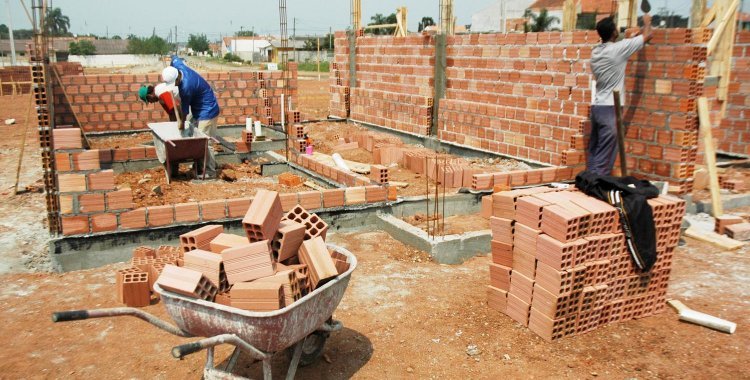According to a note from the Presidency of the Republic, to which VerAngola had access, the document now approved "defines public policies in the field of land management and housing construction, in order to ensure the right of citizens to decent housing, quality of life and human dignity".
The said document aims to mitigate the "housing deficit in the country", as well as "create conditions that serve as a guide for the construction of a housing model of a social nature, with easy, quick and low-cost implementation and application", says the statement from the Presidency.
Thus, with the approval of this measure, the Government wants to encourage the distribution of four million plots of land by 2050, aiming at mitigating the "housing deficit" through the promotion of territorial planning tools and the distribution of different types of plots of land to respond to housing, with legal certainty of ownership, refers the final communiqué of the session, quoted by Angop.
It should also be noted that, among other purposes, this measure also seeks to appeal to commercial banks to take into account the use of legal land tenure titles to obtain financing and stop the spread of informal settlements.
Speaking to the press, the Minister of Public Works, Urbanism and Housing, Carlos dos Santos, said that in 2009 the National Urbanism and Housing Program was launched, which contained "directed self-construction as the main line of success", but at the time it did not there were sufficient conditions for the State to create infrastructure on the land, distribute it and guarantee the success of the initiative.
According to the minister, this fact brought good and not very good situations, such as the growth of neighborhoods in risk areas, namely the neighborhoods on the slopes of Boavista and Paraíso, in Luanda, "built without any requalification, without allotment, bringing some not very good questions".
Carlos dos Santos stressed that the good examples are the Kifica and Zona Verde II districts, in Luanda, built on the citizens' own initiative, which will now be provided with infrastructure such as roads, energy and water.
The minister informed that the program provides for the distribution of 900,000 lots throughout the country by 2027, with the housing deficit currently at 2.2 million lots, for an estimated population of 34 million inhabitants. The target is to reduce current numbers by 49 percent.
"The projection, at a growth rate of 3 percent a year, means that this deficit, if actions are not taken today, in 2050, within the scope of the long-term strategy, this deficit will reach four million housing units", he underlined. Charles dos Santos.
The government official stressed that the project will primarily define urbanized and urbanizable areas, with a view to transferring part of the people who now live in risk areas to new areas, which already have roads, water, energy, trees and signage.
For the current year, on an experimental basis, estimated at around five billion kwanzas, it is planned for the provinces of Luanda, Bié and Lunda Sul, with one municipality each, the creation of lots of 300 square meters, 600 square meters and one thousand square meters in urban and semi-urban areas, agrovillages and fishing villages from one hectare to ten hectares.
"This period will above all allow us to define prices, which will vary depending on the level of infrastructure that we are going to have", explained the minister, referring that in the case of roads, energy, water, social facilities (health centers and schools ) and afforestation, prices may be more expensive, but for cases in which the State allocates and defines accesses and points for water and electricity, prices will be "much lower".
Still in the same session, according to Angop, the commission also gave the 'green light' to the new Legal Regime of Self-invoicing, as well as approved the Balance of Execution of the Financial Programming of the National Treasury, relative to the first quarter of this year, among other themes of the economic forum.







